The All-in-One-Place Guide to Selling Your Home and Moving
http://decor-ideas.org 04/21/2015 02:13 Decor Ideas
From finding a real estate agent, prepping, staging and selling your home to packing up and moving, the entire process of getting out of one home and into another can be overwhelming. Whether you are still debating if you should remodel your home or just move, or feel ready to put up a for-sale sign, this guide is a good place to start — it’s packed with advice and articles from Houzz covering just about every aspect of selling and moving. It can’t do the work for you, but perhaps it will at least help you feel more organized in the middle of this inevitably messy process.
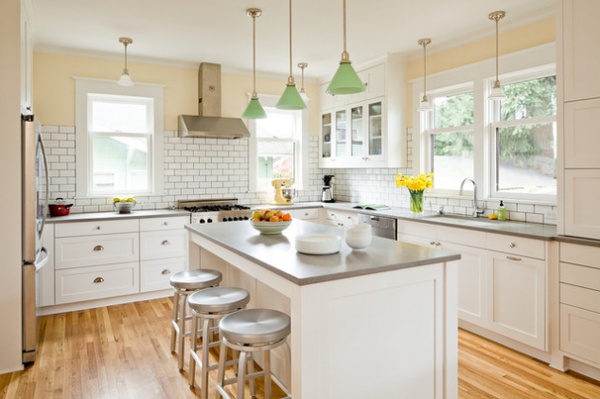
Find the right real estate agent. A good real estate agent is one you not only trust to help sell your home quickly and for the best price, but also to support and educate you throughout the selling process. As you are searching for an agent, look for someone with a realistic but tactful approach. A good agent will be able to name a few drawbacks of your home — as well as the selling points.
More: 15 Questions to Ask When Interviewing a Real Estate Agent
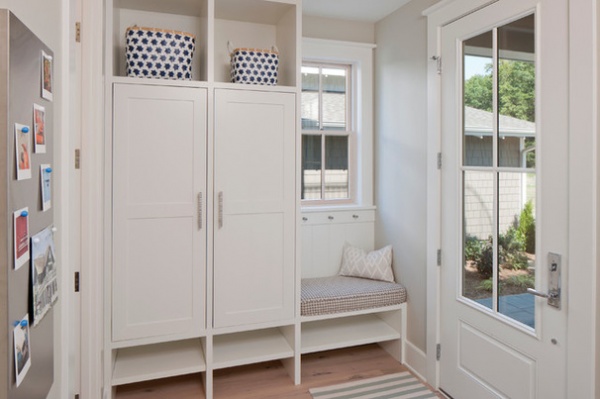
Make a plan to prepare your house for sale. As soon as you make the decision to sell your home, start a master list (or several lists) to keep track of potential home repairs and other tasks, from tiny to major. It’s easy to let the to-dos make your head swim, and having everything on paper (or a note on your phone) can help you stay on track. Decide on a timeline for the “launch” of your home sale, and work backward from the date of your first open house to figure out when you need to complete tasks.
Tip: If you need to get a lot of furniture and accessories out of your home while it’s on the market, consider renting a storage unit. It could be worth the expense it if it helps your house show better and sell faster.
More: Help for Selling Your Home Faster — and Maybe for More

Decide what to fix and what to leave be. The sad fact is, it is unlikely you will be able to recoup the full cost of home improvements in the sale of your home — so make the most of your money and choose fixes wisely. One criterion to use when deciding whether to fix something before the sale is to ask if the item gives the impression that the property has not been well cared for. Leaky faucets, cracked tiles, a broken doorbell or anything that doesn’t work as it should can raise a red flag for buyers.
Tip: Always ask yourself if you can you find a less expensive fix before committing to a big-ticket item. Can you repaint the cabinets rather than replace them? Clean and polish the wood floors instead of refinishing?
More: Fix It or Not? What to Ask When Prepping Your Home for Sale

Boost curb appeal. There’s much ado about curb appeal in the real estate world with good reason — many potential buyers make a first drive-by trip to see your home and decide then and there whether attending the open house is even worth a visit. Draw people in with big, bold house numbers, a freshly painted front door and blooming flowers.
Tip: Don’t forget the garage door. If your garage is positioned near the front of your home, any flaws in this area can detract from the overall impression.
More: 17 Ways to Increase Your Home’s Curb Appeal

Tweak your home to help it sell. Budget-friendly fixes often have the biggest impact, so it makes sense to start there. Quickly clean the exterior and landscape, steam clean the carpeting, replace worn area rugs and fix any scuff marks, nail holes and paint cracks. If your bathroom needs updating, give it a quick makeover with a new showerhead, faucet and fluffy white towels.
More:
10 Low-Cost Tweaks to Help Your Home Sell
10 Ways to Boost Your Home’s Resale Value

Get a fair home appraisal. Avoid being shocked by a home appraisal that comes in below what you think your home is worth by doing some homework in advance. Before your appraisal, make a list of recent improvements to your home, including everything from renovating the kitchen to painting your deck. And ask if your real estate agent can tag along on the appraisal — he or she may be able to offer some insight about the unique benefits of your home.
The Dos and Don’ts of Home Appraisal

Stage your home to sell. Before you start buying new throw pillows, stagers agree it’s best to get your house sparkling clean and decluttered. Aim to make as much room as possible on surfaces and inside closets and cupboards to show off your space. Make sure each room has a clearly defined purpose. There’s no shame in having a room that’s a bit of a mishmash, but no one wants to see it like that during an open house. Buy, rent or borrow inexpensive furnishings to make a clearly defined room out of the mess, and enjoy a big payoff.
Tip: Don’t forget to stage the outdoor areas, too. A shined-up stainless steel grill and a hammock in the backyard help potential buyers imagine enjoying summer weekends hosting barbecues and relaxing.
More:
Sell Your Home Fast: 21 Staging Tips
How to Stage Your Kitchen for a Home Sale
10 Tricks to Help Your Bathroom Sell Your House

Save money on staging. Showing your home at its best doesn’t have to mean spending a lot of money. Pare back what you already own, and borrow items from a friend or relative if you need to fill in gaps. If you do end up making a few purchases, choose things you would like to use in your new home, too.
More: Save Money on Home Staging and Still Sell Faster

Get listing photos right. The listing photos of your home will be responsible for drawing most people into that first open house. When the photographer comes to take pictures, make sure every lamp is turned on, all the window coverings are pulled open and the floors are shiny and clean. In the listing, make sure your real estate agent only includes photos of your home’s most attractive rooms, plus written descriptions of the other spaces. Potential buyers will be attracted by your home’s best features — don’t wreck it by including a photo of that dated powder room.
Tip: The more flooring that can be seen, the larger the room will appear, so consider removing area rugs before having photos taken.
More: Attract Home Buyers Easily With Great Photography

Prep your home for an open house. You’ve put in a lot of work to get your home ready for showtime, so don’t drop the ball by skipping important details on the day of the open house. Cleanliness ranks number one in importance, so be sure to sweep up every last breakfast crumb and smear of toothpaste on the bathroom sink, and sneaky dust bunnies in the corners. Also make a quick run through the house, removing any personal items (party invites, mail, school projects) that have migrated onto the fridge and counters.
Tip: For your own security and peace of mind, remember to shut down and password-protect all your computers, and hide small valuables.
More: 7 Must-Dos on the Day You Show Your House
Downsize without losing your cool. If you’re going to be moving into a smaller space, figuring out what to keep and what to get rid of can be a massive headache. Start by listing your must-have, nonnegotiable items, and commit to bringing these things with you. Measure carefully and bring only the items you know will fit in the new space. Get rid of duplicates and invest in storage solutions for the new place.
More:
Tips for Moving Into a Smaller Space
Downsizing Help: Choosing What Furniture to Leave Behind
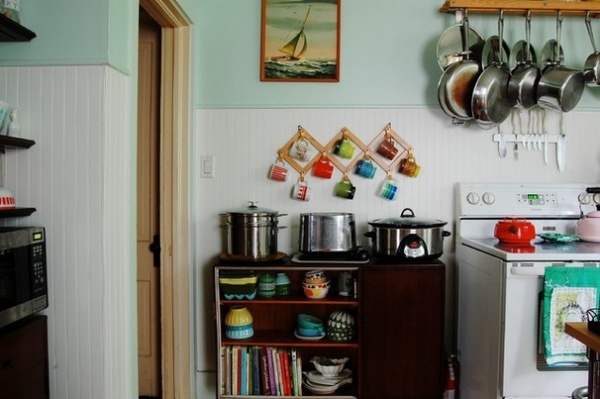
Take time to say goodbye to your old place. Leaving a home, especially one you have lived in for many years, can be an emotional event. Consider taking some photos of your old home before you pack up, when your rooms are not clean and tidy, but just as they are on a normal day. Having a small photo album can be a comfort when you’re waxing nostalgic about your old house, and can be a wonderful keepsake for kids. And if you’re in the mood for some fun, throw one last party in your old place amid the boxes and packing tape.
More: Saying Goodbye to One Home and Hello to Another

Be a savvy buyer. When looking for your new place, the home inspection can tell you only so much. Keep your own list of items of personal importance to you, and check them off each time you look at a potential home. For instance, you may want to consider indoor-outdoor flow, layout, size and placement of windows, natural light and closeness to neighbors.
More: Home-Buying Checklist: 20 Things to Consider Beyond the Inspection

Pack smart for a smoother move. If you remember only one tip to make moving easier, make it this one: Purge before you pack. The more stuff you have to move, the more it will cost, the longer it will take and the more challenging it will be, both to pack and unpack.
Tip: Keep a master packing list. Number each box as you pack it and mark the number on all four sides. Instead of listing the contents on each box, write down what’s in each numbered box on your master list. Make things even clearer by color coding boxes with basic label stickers to indicate which room they should go to in the new place.
More: Relocating? Here’s How to Make the Big Move Better
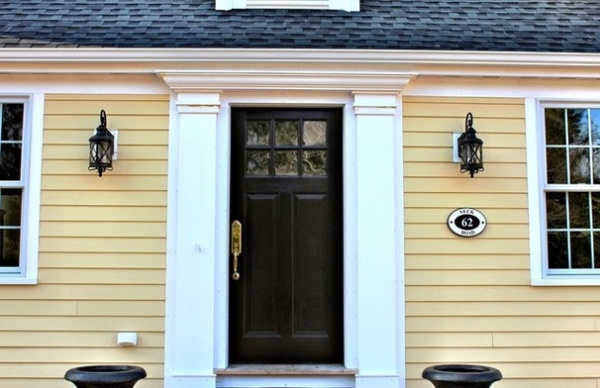
Tackle key tasks before you move in. If your timeline allows, it can feel so much more civilized to take care of certain tasks before you move in, instead of hassling with little things right after moving in. Change the locks on all the doors, get mechanical equipment cleaned and serviced, hook up utilities and install window treatments.
Tip: Double check that your pets’ tags have the new address and your cell phone number on them.
More:
7 Things to Do Before You Move Into a New House
Relocating? Here’s How to Make Moving In a Breeze
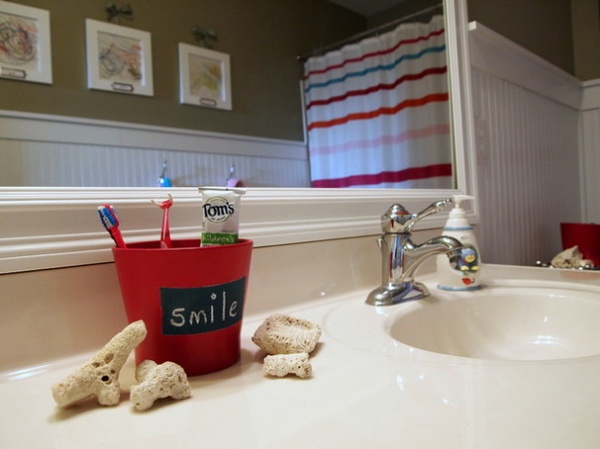
Put together a moving-day kit. Having essentials on hand — toilet paper, toiletries, an overnight bag of clothes, coffee and a coffeemaker, some trash bags and a Leatherman tool or Swiss Army knife — will make those first few nights a lot saner. Think ahead and include whatever you know you’ll want at your fingertips in a moving-day kit.
Tip: Houzz user emma0217 shared this smart moving-day tip in the Comments: “When we had a corporate move, I won’t forget the best advice I got from the movers that packed us: Put a set of sheets and towels in the drawers of your dresser — this makes it easy and quick to make the bed and have a shower without hunting through boxes when you’re exhausted.”
Tell us: Are you selling your house, or have you recently moved? How did you handle the process? Share your tips in the Comments.
More: The Moving-Day Survival Kit: Lifesaving Items and Niceties
Related Articles Recommended












